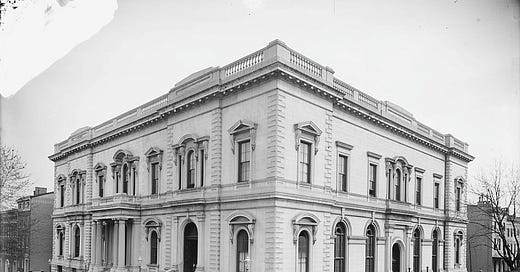The Peabody Institute Takes a Hard Look ... at Itself
The Conservatory of Johns Hopkins Has Studied Its Founder and Namesake
This work is part of a broader ongoing initiative at Johns Hopkins University to recognize and reckon with hard truths about our collective history and that of our founders. — Fred Bronstein
This past spring, The Peabody Institute at Johns Hopkins completed an inquiry into the connections of its founder and namesake George Peabody to slavery. As Dean Fred Bronstein explains: “When Johns Hopkins University announced in December 2020 that research had found census documents listing the university’s founder, Johns Hopkins, as having enslaved people in his home in Baltimore in the mid-1800s, the Peabody Institute embraced that moment in sync with the university’s commitment to better understanding its history. Peabody, which was founded in 1857 and became a division of JHU in 1986, commissioned independent research into the life and work of merchant banker, philanthropist, and institute founder George Peabody. The primary aim was to investigate any personal relationship George Peabody had to slaveholding and to confirm and better understand possible connections to slavery in his extensive business interests.”
Peabody Institute, East Mount Vernon Place, Baltimore, circa 1902. Image courtesy Wikipedia.
The school’s investigation did not uncover any evidence that Peabody or anyone in his immediately family owned or held enslaved people. Still, the report explains, “There is compelling evidence that his finances were entangled with the slave trade through commerce, business, and banking relationships, and that he built considerable wealth through those relationships.” The study went beyond the Peabody family, to examine the school’s trustees. Dean Bronstein continues: “We have learned that the Peabody Institute’s founding Board of Trustees included at least seventeen business, political, and community leaders who held enslaved individuals at some point, in some instances well into the 1850s.”
You can find Dean Bronstein’s full remarks here, along with the text of the research report from historian Dr. Anne-Marie Angelo here.
— MSJ




